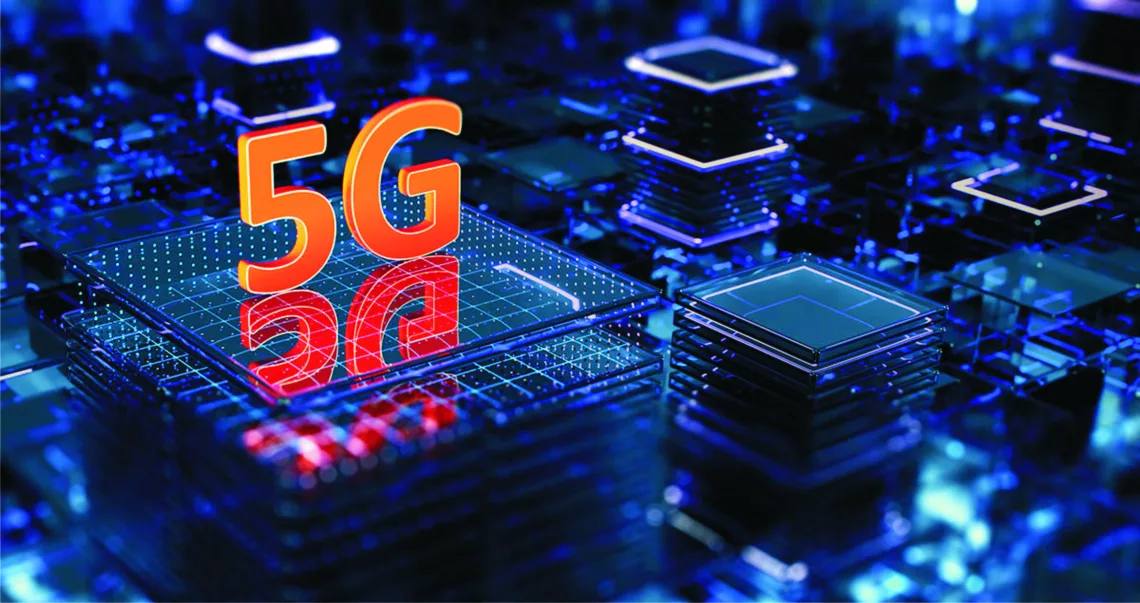The Fifth Generation (5G) network has taken the center stage in the digital economy sector around the world and Nigeria’s is making steady investment to deploy the new technology to enhance the business capacity of indigenous firms through the Information and Communications Technology (ICT).
It was on this premise that Mafab Communications, one of the three firms that won the bid for the 5G 3.5GHz spectrum licenses issued by the Nigerian government after a competitive auction sale last year, rolled out its 5G services to the country.
Mafab Communications said the launch will bring about a new dawn of infinite possibilities that will open more opportunities for Nigerians to grow businesses and create jobs in the digital economy sector.
During the elaborate launch of the network services and unveiling of a new logo of the company in Abuja on Tuesday, January 24, 2023, in the presence of the minister of communications and digital economy, Prof. Isa Ibrahim Pantami, the chairman of Mafab Communications, Dr. Musbahu Bahir, in his address, noted that “the launch of Mafab 5G network is the beginning of immense opportunities for the country and it represents Nigeria’s capabilities and infinite possibilities.”
He added that Mafab’s entry into this network will play a major role in advancing new solutions that will push Nigeria from not just being a consumer of technology but will put the country on the pedestal of playing an active role in advancing and implementing new technologies and also enable the country to be a technology hub in Africa and world.
He said, “5G network will usher into this country a wide array of business opportunities, wherein various business outfits will expand their frontiers with operational ease and speed.”
He added 5G will be of benefit “especially in the fields of education, medical sciences, engineering, security, financial services, SMEs, smart cities, transportation and entertainment, which will not benefit only urban areas but also, meet our long-term goal of ensuring that even people in rural areas and villages also enjoy benefits of this amazing technology.”
He added that 5G will improve the global competitiveness of Nigerians and enhance their innovation, which will also bring socio- economic benefit to the citizens.
“With 5G infrastructure, Nigeria will surely be a head ahead of many other countries, especially in Africa. Indeed, with the 5G network, our future as a people and as a country is remarkably bright,” he noted.
He reiterated the commitment of Mafab saying, “As a company, Mafab is fully committed to bringing the benefits of 5G technology to Nigeria and Nigerians through deploying its brand-new network to drive economic and business development with increased broadband capabilities nationwide.”
Also speaking at the event, minister of communications and digital economy, Prof. Isa Ibrahim Pantami, said that Mafab Communications has taken its place in the competitive sector to provide immense opportunity for the development of the Nigerian Digital economy, stressing that the launch of 5G will see Nigeria having the largest 5G network in Africa amid the enormous opportunities it offers the nation.
The executive vice chairman, EVC of Nigerian Communications Commission (NCC) Prof Umar Garba Danbatta, in his remarks, said the federal government has created a pro-investment and pro innovation environment which has seen the emergence of Mafab communications, which has made an impressive entry into the Nigerian market.
5G is aimed to improve connectivity with greater speed and creates new, intelligent systems which will enhance businesses. The deployment of the 5G network according to experts in the industry around the world will trigger about 20 trillion dollars digital economy, and will employ about 20 million people around the world.
According to an ICT expert, Hanniel Jafaru, much as the 5G will bring about opportunities in Nigeria it will also present some challenges in the country. Some of these challenges include the poor literacy level in Nigeria, the difficulties that the rural areas may encounter having access to the network and the infrastructure required to accommodate the new technology. All these need to be addressed before any meaningful deployment of the network can happen.





